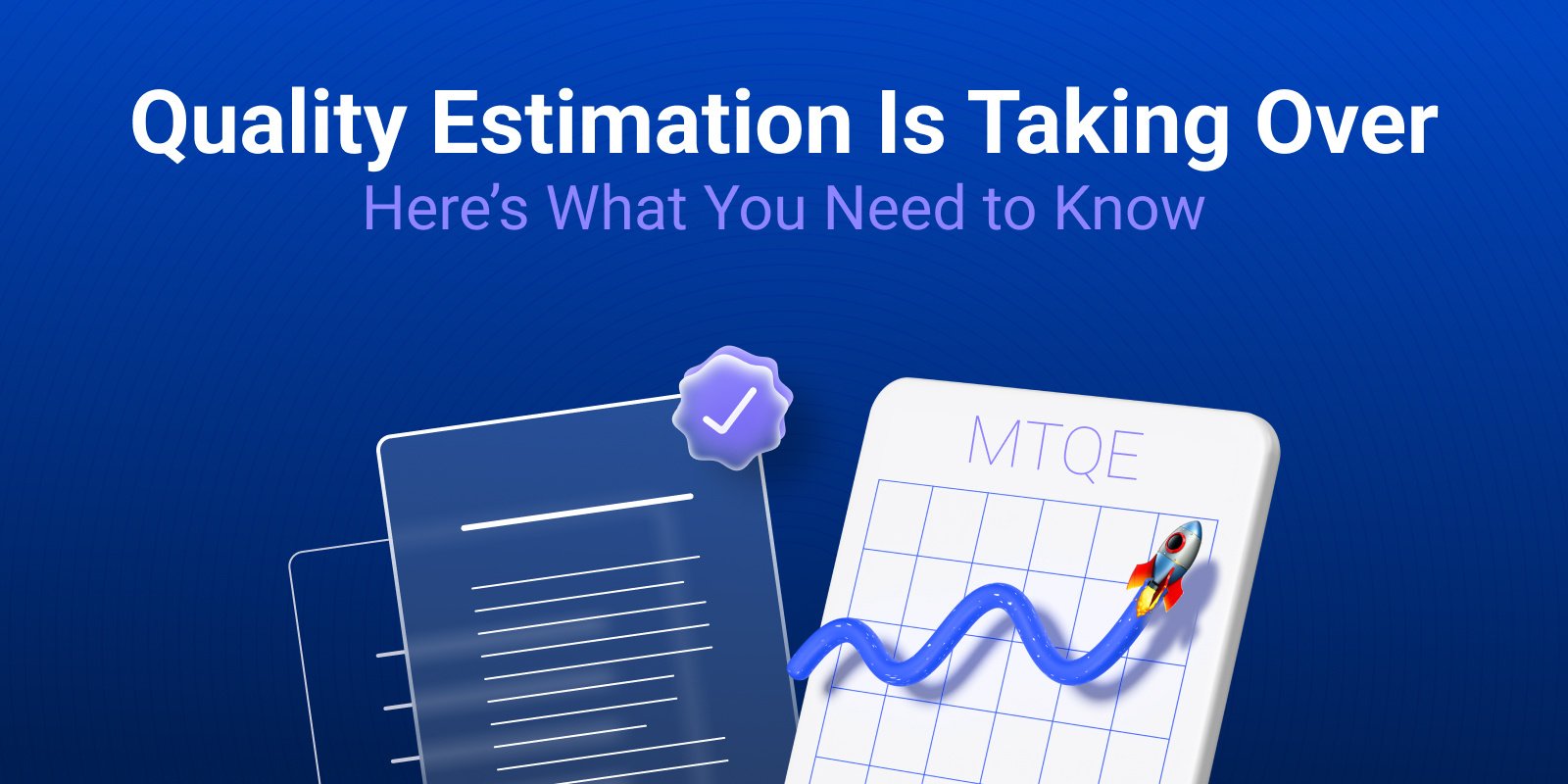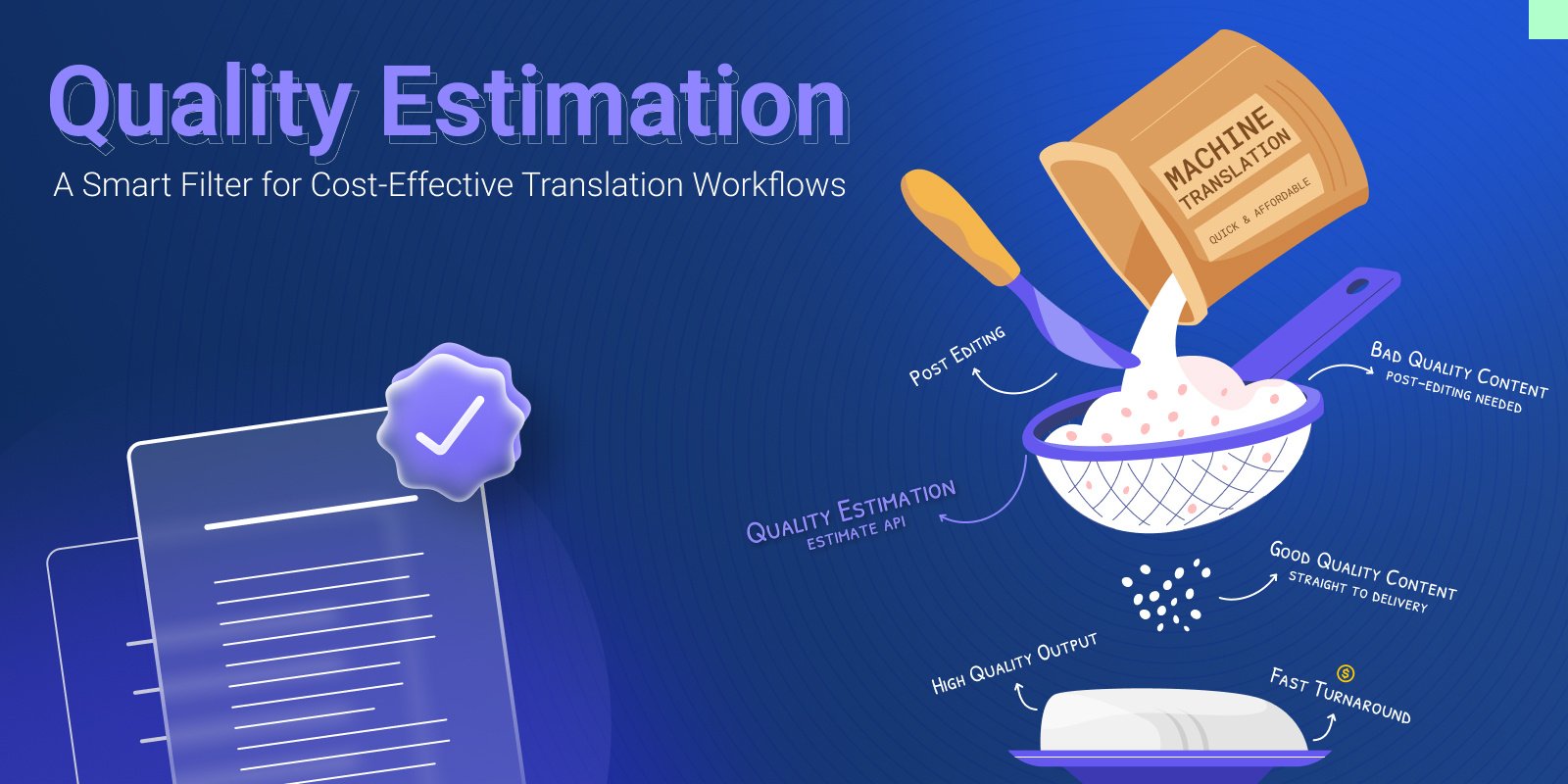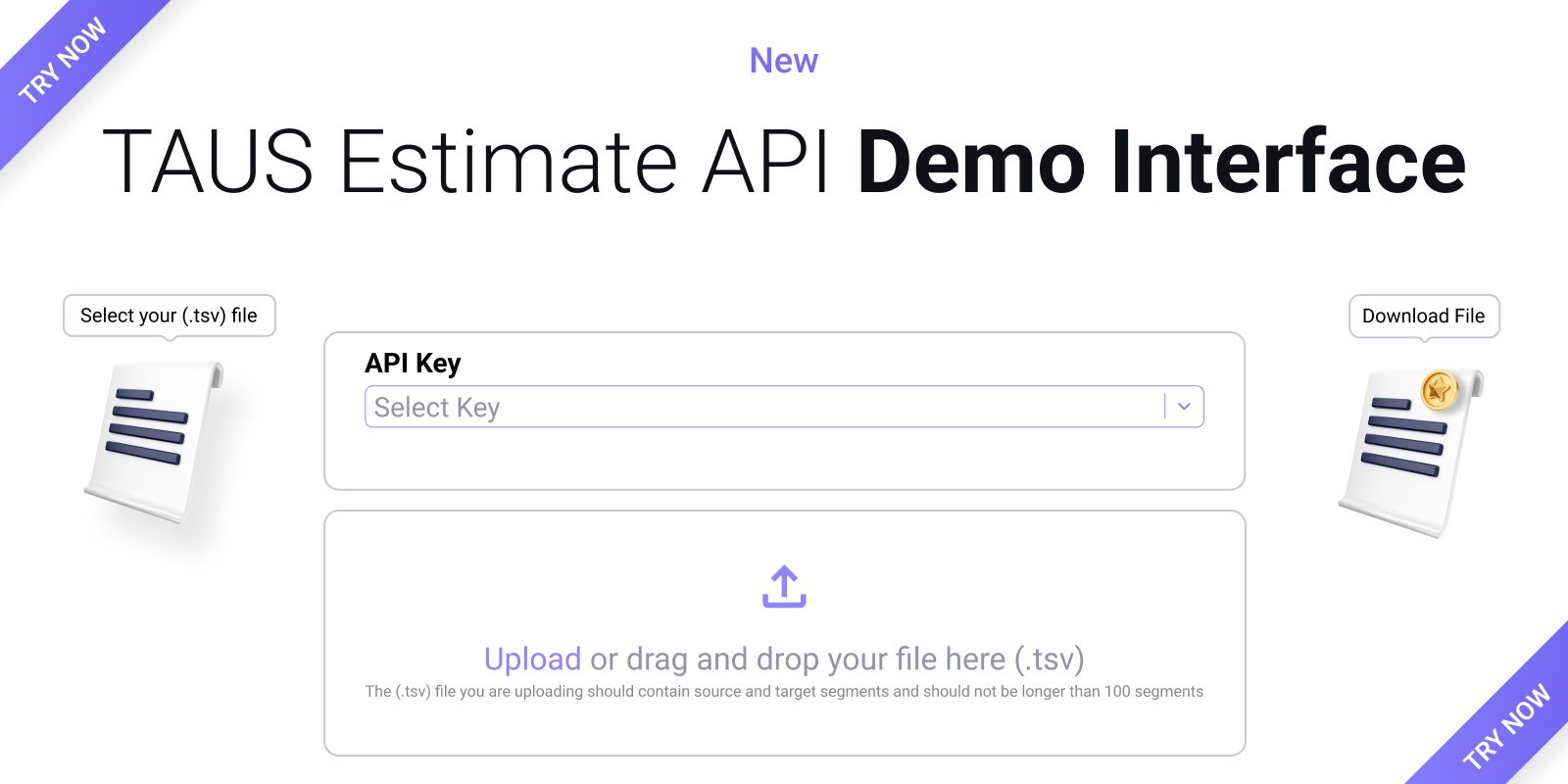Unlocking Success: The Real-World Impact of Quality Estimation
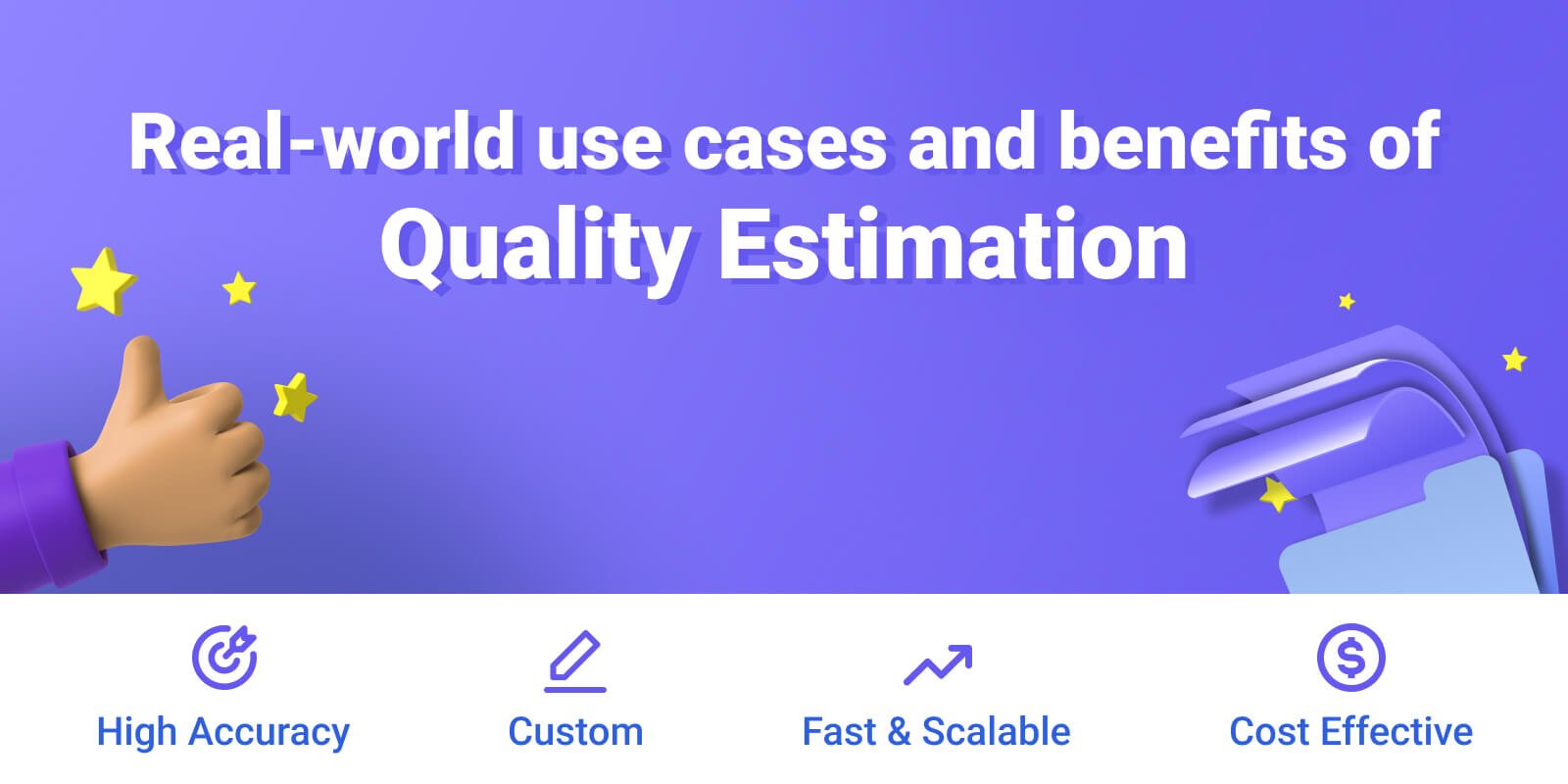
Find out how companies integrate QE into their workflows and explore real-world use cases and benefits of quality estimation. From mitigating risk in global chat communication to minimizing post-editing in machine translation workflows.
AI is becoming deeper ingrained in our industry, and innovative technologies and processes, driven by LLMs and GenAI, are being announced left and right. It can be hard to navigate between the oneirisms and the applications with actual transformative power. When it comes to quality estimation, the advancements over the past year are significant. Significant enough to analyze the real-world impact it has on companies who have successfully integrated a quality estimation step into their workflows. In this blog, we’ll take a closer look at the various real-world use cases and benefits of quality estimation.
Quality Estimation in Content Workflows
Global communication and access to information in our native language are paramount in our interconnected world, making the accuracy of translated content foundational for success. As the volume of content grows, so does the need for translation in an expanding variety of languages. The result is an abundance of content that exceeds human capacities.
While machine translation addresses the initial translation step, quality estimation can play a pivotal role in the subsequent steps of reviewing and post-editing the translations. The use cases are clear: from risk management to minimizing human review, to evaluating and choosing the best performing MT engines. However, let’s take a closer look at the concrete benefits that quality estimation has for active users of the TAUS Estimate API.
1. Mitigating risk in global chat communication
Global technology companies that manage thousands of chat messages, being sent between users and agents, turn to machine translation to get the message across faster. But how do they ensure the correctness of the information and the quality of the translation?
Here’s where quality estimation can make a serious difference. By integrating TAUS Estimate API into their workflows, a leading technology company experienced a significant improvement in the accuracy and reliability of their machine-generated translations. Using language data from the TAUS Data Repository, synthetic data created with LLMs and a sample of data form the client, TAUS trained a custom model that reflects the client’s unique content and quality expectations.
Now, processing millions of characters through the API per day, the company is achieving increased operational efficiency, reduced post-editing efforts and substantial cost savings. Concrete benefits: an impressive 85% accuracy rate and rolling out content 3 times faster.
Read the full case study here.
2. Minimizing post-editing in MT workflows
Global technology and language providers have now widely adopted machine translation, but are still struggling with the amount of time it takes to review all of the MT before it gets sent out to the client (or published). Integrating a quality estimation step into this workflow gives insights into the quality of the MT and thus helps companies focus human effort only where needed.
Through implementing TAUS Estimate API, a global technology solutions provider witnessed a substantial improvement in the efficiency of their MT processes. TAUS quality estimation capabilities proved instrumental in predicting the MT quality, reducing the need for extensive post-editing for almost 30% of their content. This not only led to significant time savings, but also increased productivity, ultimately resulting in improved translation output and cost-savings.
Read the full case study here.
Transforming potential into reality
While our content workflows and the technologies we use keep evolving, quality estimation is turning potential into reality. Analyzing these real-world applications of the TAUS Estimate API and the benefits it has brought to these companies, it’s evident that accurate quality estimation is not just a theoretical concept; it's a recipe for success.
With a generic model that is available in 100+ languages and the ability to train custom models tailored to your unique content and quality expectations, the TAUS Estimate API has become an indispensable tool for a productive and efficient content workflow.
Get in touch now to get a complementary custom model with your first credit bundle purchase.
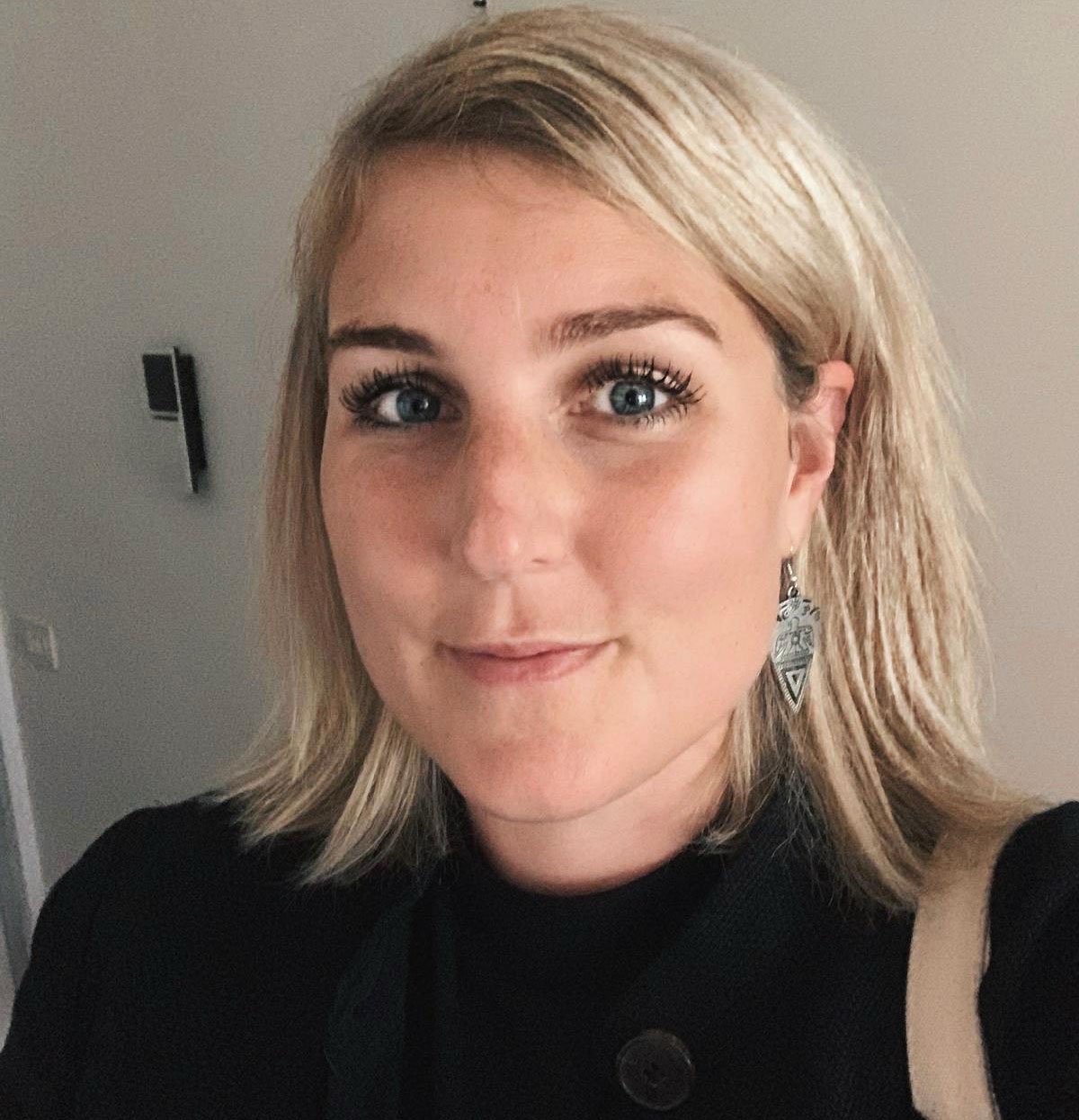
Anne-Maj van der Meer is a marketing professional with over 10 years of experience in event organization and management. She has a BA in English Language and Culture from the University of Amsterdam and a specialization in Creative Writing from Harvard University. Before her position at TAUS, she was a teacher at primary schools in regular as well as special needs education. Anne-Maj started her career at TAUS in 2009 as the first TAUS employee where she became a jack of all trades, taking care of bookkeeping and accounting as well as creating and managing the website and customer services. For the past 5 years, she works in the capacity of Events Director, chief content editor and designer of publications. Anne-Maj has helped in the organization of more than 35 LocWorld conferences, where she takes care of the program for the TAUS track and hosts and moderates these sessions.
 by Amir Kamran
by Amir Kamran

